Related Research Articles

Delta Kappa Epsilon (ΔΚΕ), commonly known as DKE or Deke, is one of the oldest fraternities in the United States, with fifty-six active chapters and five active colonies across North America. It was founded at Yale College in 1844 by fifteen sophomores who were discontent with the existing fraternity order on campus. The men established a fellowship where the candidate most favored was he who combined in the most equal proportions the Gentleman, the Scholar and the Jolly Good Fellow.

Numa Denis Fustel de Coulanges was a French historian. Joseph M. McCarthy argues that his first great book, The Ancient City (1864), was based on his in-depth knowledge of the primary Greek and Latin texts. The book argued that:
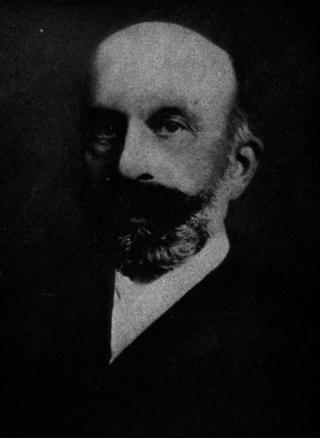
Albion Woodbury Small founded the first independent department of sociology in the United States at the University of Chicago in Chicago, Illinois, in 1892. He was influential in the establishment of sociology as a valid field of academic study.
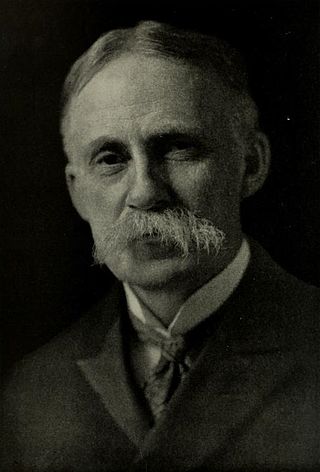
Harry Pratt Judson was a U.S. educator and historian and the second president of the University of Chicago.
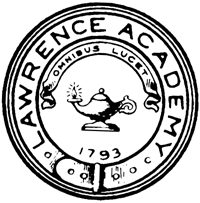
Lawrence Academy at Groton is a private, nonsectarian, coeducational college preparatory boarding school located in Groton, Massachusetts, in the United States. Founded in 1792 by a group of fifty residents of Groton and Pepperell, Massachusetts as Groton Academy, and chartered in 1793 by Governor John Hancock, Lawrence is the tenth oldest boarding school in the United States, and the third in Massachusetts, following Governor Dummer Academy (1763) and Phillips Academy at Andover (1778). The phrase on Lawrence Academy's seal is "Omnibus Lucet": in Latin, "Let light shine upon all."

Edward Rowland Sill was an American poet and educator.

In the United States, an honor society is a rank organization that recognizes excellence among peers. Numerous societies recognize various fields and circumstances. The Order of the Arrow, for example, is the National Honor Society of the Boy Scouts of America. Chiefly, the term refers to scholastic honor societies, those that recognize students who excel academically or as leaders among their peers, often within a specific academic discipline.
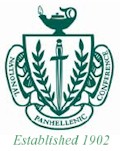
The National Panhellenic Conference (NPC) is an umbrella organization for 26 (inter)national women's sororities throughout the United States and Canada. Each member group is autonomous as a social, Greek-letter society of college women and alumnae.

Theta Nu Epsilon is a sophomore class society. Founded at Wesleyan University in 1870 as a chapter of Skull and Bones, the society accepts members regardless of their fraternity status.

Cyrus Northrop was an American university president.
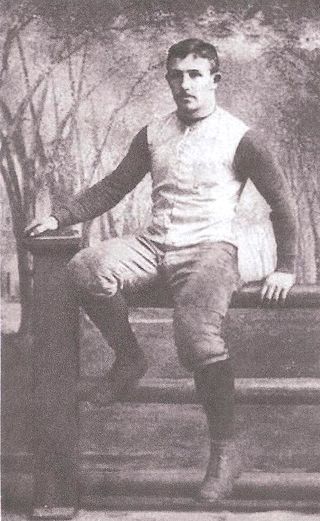
Charles Otis Gill was an American Congregationalist clergyman and college football player and coach. With Gifford Pinchot he co-authored two influential books on the state of rural churches in the United States.

Deke House, the Delta Kappa Epsilon or "Deke" House on the campus of Cornell University, was built in 1893 and was listed on the National Register of Historic Places in 1991. It was designed by William Henry Miller to serve as a fraternity house. Two trees which Theodore Roosevelt planted in front of the house are on the National Register of Historic Trees.

Alpha Kappa Kappa (ΑΚΚ) is a medical school fraternity that was founded in 1888 at Dartmouth Medical School. AKK had over sixty chapters at various medical schools throughout the United States and Canada for approximately eighty years but now operates with two independent, local chapters.
The North American fraternity and sorority system began with students who wanted to meet secretly, usually for discussions and debates not thought appropriate by the faculty of their schools. Today they are used as social, professional, and honorary groups that promote varied combinations of community service, leadership, and academic achievement.

Walker Blaine was an official in the United States Department of State.
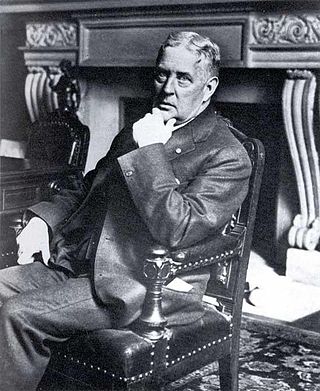
Edmund Charles Tarbell was an American Impressionist painter. A member of the Ten American Painters, his work hangs in the Boston Museum of Fine Arts, Metropolitan Museum of Art, National Gallery of Art, Smithsonian American Art Museum, Corcoran Gallery of Art, DeYoung Museum, National Academy Museum and School, New Britain Museum of American Art, Worcester Art Museum, and numerous other collections. He was a leading member of a group of painters which came to be known as the Boston School.

Nathaniel J. Butler was the 12th President of Colby College, Maine, United States from 1896 to 1901.

John Ohleyer Moseley was an American educator, a Rhodes Scholar, and a Professor of Latin at the University of Oklahoma in the 1920s. He was also the President of the Sigma Alpha Epsilon fraternity in the 1930s. He served as the President of Central State College from 1935 to 1939, and the University of Nevada, Reno from 1944 to 1949.
Edward Montclair Tillinghast was American football player and coach. While playing for the Cleveland Athletic Club, he coached the 1891 Western Reserve football team.
References
- ↑ Catalogue of the Delta Kappa Epsilon fraternity. The Delta Kappa Epsilon council. 1910. Retrieved March 25, 2011.
- ↑ Tarbell, Frank (1886). "Phonetic Law". Transactions of the American Philological Association. 17: 5–16. doi:10.2307/2935740. JSTOR 2935740.
- ↑ Robert Herrick, "Frank Bigelow Tarbell;" The University of Chicago Magazine, Volumes 7-8, University of Chicago 1921
- ↑ Thomas Wakefield Goodspeed (1973). A History of the University of Chicago, Founded by John D. Rockefeller: The First Quarter-Century. University Of Chicago Press. ISBN 0-226-30383-7.
- ↑ Robert Herrick, "Frank Bigelow Tarbell", The University of Chicago Magazine, Volumes 7-8, University of Chicago: 1921
- ↑ Stephen L. Dyson. (1998). Ancient Marbles to American Shores: Classical Archaeology in the United States. University of Pennsylvania Press. ISBN 0-8122-3446-4.